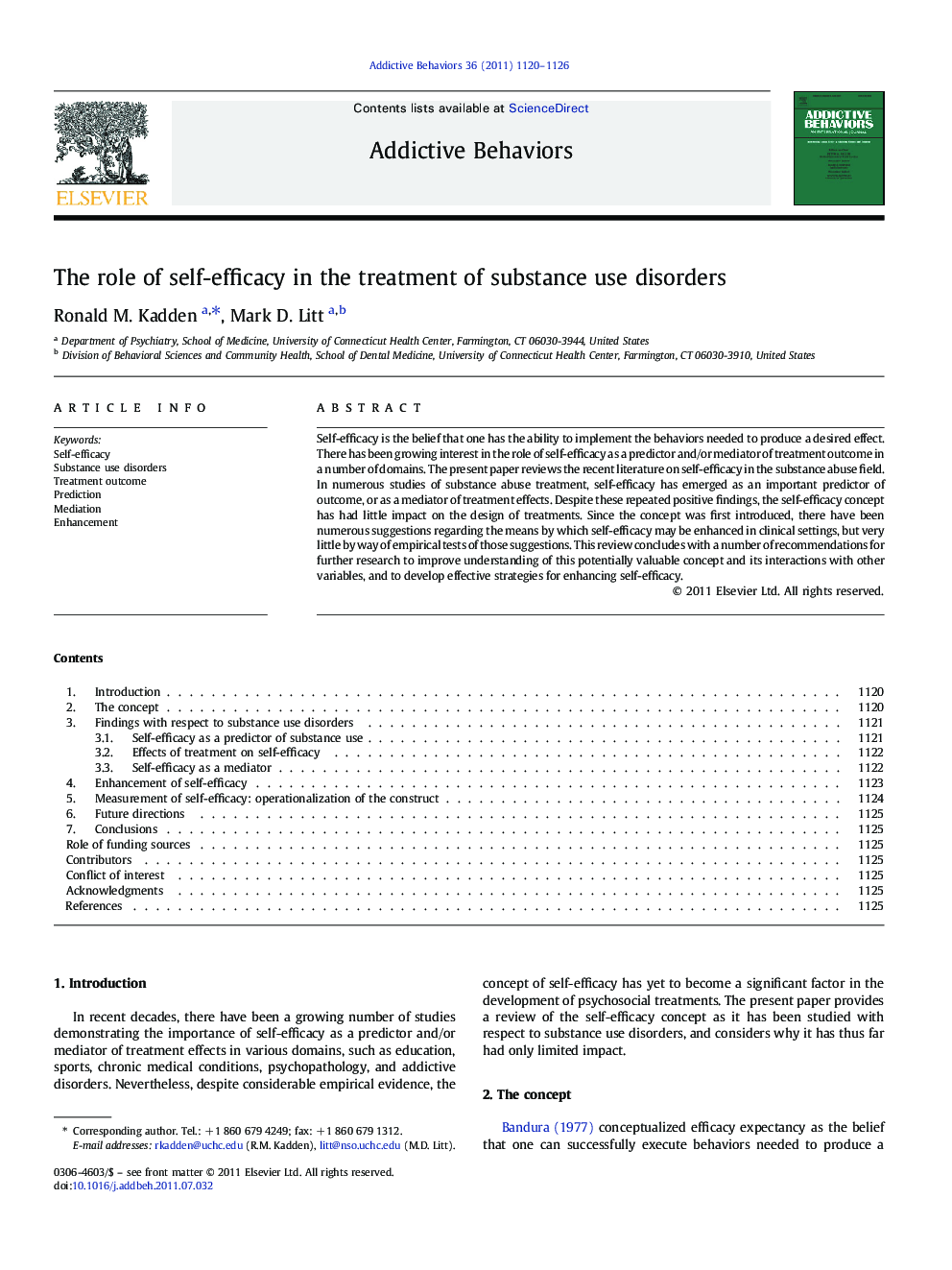| Article ID | Journal | Published Year | Pages | File Type |
|---|---|---|---|---|
| 899533 | Addictive Behaviors | 2011 | 7 Pages |
Self-efficacy is the belief that one has the ability to implement the behaviors needed to produce a desired effect. There has been growing interest in the role of self-efficacy as a predictor and/or mediator of treatment outcome in a number of domains. The present paper reviews the recent literature on self-efficacy in the substance abuse field. In numerous studies of substance abuse treatment, self-efficacy has emerged as an important predictor of outcome, or as a mediator of treatment effects. Despite these repeated positive findings, the self-efficacy concept has had little impact on the design of treatments. Since the concept was first introduced, there have been numerous suggestions regarding the means by which self-efficacy may be enhanced in clinical settings, but very little by way of empirical tests of those suggestions. This review concludes with a number of recommendations for further research to improve understanding of this potentially valuable concept and its interactions with other variables, and to develop effective strategies for enhancing self-efficacy.
► Evidence of association between self-efficacy and substance abuse treatment outcome. ► Few studies have tested the assumption that self-efficacy can be directly enhanced. ► Need to develop interventions for enhancing self-efficacy as part of treatment.
